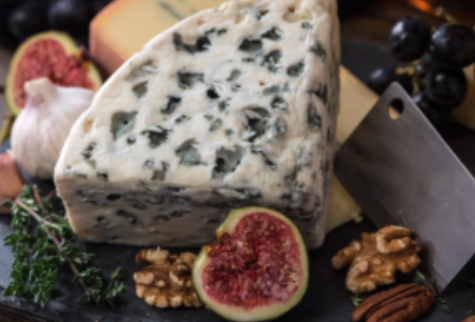If you are struggling with insulin resistance, you might want to skip the dairy aisle the next time you visit the grocery store. This recent study (1) has shown that Branched Chain Amino Acids (BCAA), which exist in very high amounts in dairy products, cause insulin resistance. This explains why dairy is so aggravating to PCOS and insulin resistance.
The study, which was based in Iran—where the main source of BCAA is in dairy—followed 1,205 people for 2.3 years. In other research it has been found that high amounts of insulin are typically secreted after dairy protein is consumed (2). In fact, in this study there was a 60 percent increase in insulin resistance in the studyparticipants, which could definitely play a role in the aggravating PCOS or increasing the risk for development of diabetes.
Think about where dairy comes from, and the purpose it serves. Milk created by cows, sheep, and goats is intended to nourish the young of those animals. It’s ideal food for those babies because they’re growing, as they need the proteins and sugars from their mothers’ milk. They are the creatures that benefit from that milk: not humans, especially women with PCOS who are contending with too much energy being stored. The last thing we want to do is use growth-promoting hormones when we’re battling insulin resistance.
For this study, the measurement used to determine insulin resistance is the HOMA-IR test, which stands for Homeostatic Model Assessment of Insulin Resistance. (If you would like to learn more about this test, or would like to use it for your own health, you can download a copy of my FREE lab tests guide here.)
Dairy Products
When we’re looking at BCAA in dairy products, we know that both the sugar and protein in dairy is very stimulating to insulin release. Examples of the types of products that are most stimulating would be milk, yogurt, kefir, and any other high-protein dairy items that are also high in milk sugars, particularly those that are low fat.
It’s interesting to note that dairy products that are very high in fat, like butter, only have trace amounts of protein and little (if any) sugar, so butter is not correlated with the release of high amounts of insulin. This iswhy many studies have shown that full-fat dairy products are far less problematic than low-fat yogurts and other dairy products.
I generally tell people that they don’t have to be extremely strict with their diets, in that it’s okay to have a little bit of so-called “forbidden” PCOS foods now and then. Taking studies such as this one into account, I’d recommend a high-quality organic butter made from grass-fed dairy over a low-fat yogurt. Even a piece of good, high-quality, high-fat cheese now and then is a better option.
Related article: Insulin Resistance and Fertility (part 2)
BCAA Consumption After Workouts
It should be noted here thatBCAA are often used as a supplement for people who are doing heavy weight training, as raising insulin right after an intense weight-training workout is actually beneficial for muscle growth and development. If you’re not tossing heavy weights around, however,you’re not going to get the same benefit from triggering the release of so much insulin. Instead of causing the proteins to go into the muscle as they would directly after a workout, consuming them will instead contribute to fat storage, and general insulin resistance.
A primary example of this is whey protein powder, usually used in smoothies or other protein drinks, and it’s great for bodybuilders or those who are trying to build muscle and gain weight. Taking BCAAs as a supplement for weight training (which is totally different and is done timed with the training itself), is not necessarily going to cause any insulin resistance. This is because it’s done with a very specific strategy in mind, and hopefully under the supervision of a trainer who’s well versed in nutrition.
If instead you’re trying to maintain a healthy metabolism, or are insulin resistant and you’re not timing this specifically with muscle-building training, it’s better to choose a vegan protein powder simply because of the lessened BCAA content.
Photos via Unsplash and Wikimedia Creative Commons
Article References:
- Golaleh Asghari, Hossein Farhadnejad, Farshad Teymoori, Parvin Mirmiran, Maryam Tohidi, Fereidoun AziziBranched-Chain Amino Acids and Insulin Resistancehttps://onlinelibrary.wiley.com/doi/10.1111/1753-0407.12639/abstractDecember 27, 2017;
- Glycemia and insulinemia in healthy subjects after lactose equivalent meals of milk and other food proteins: the role of plasma amino acids and incretinshttps://ajcn.nutrition.org/content/80/5/1246.full.pdf+htmlJ Clin Nutr November 2004 vol. 80 no. 5 1246-1253;


